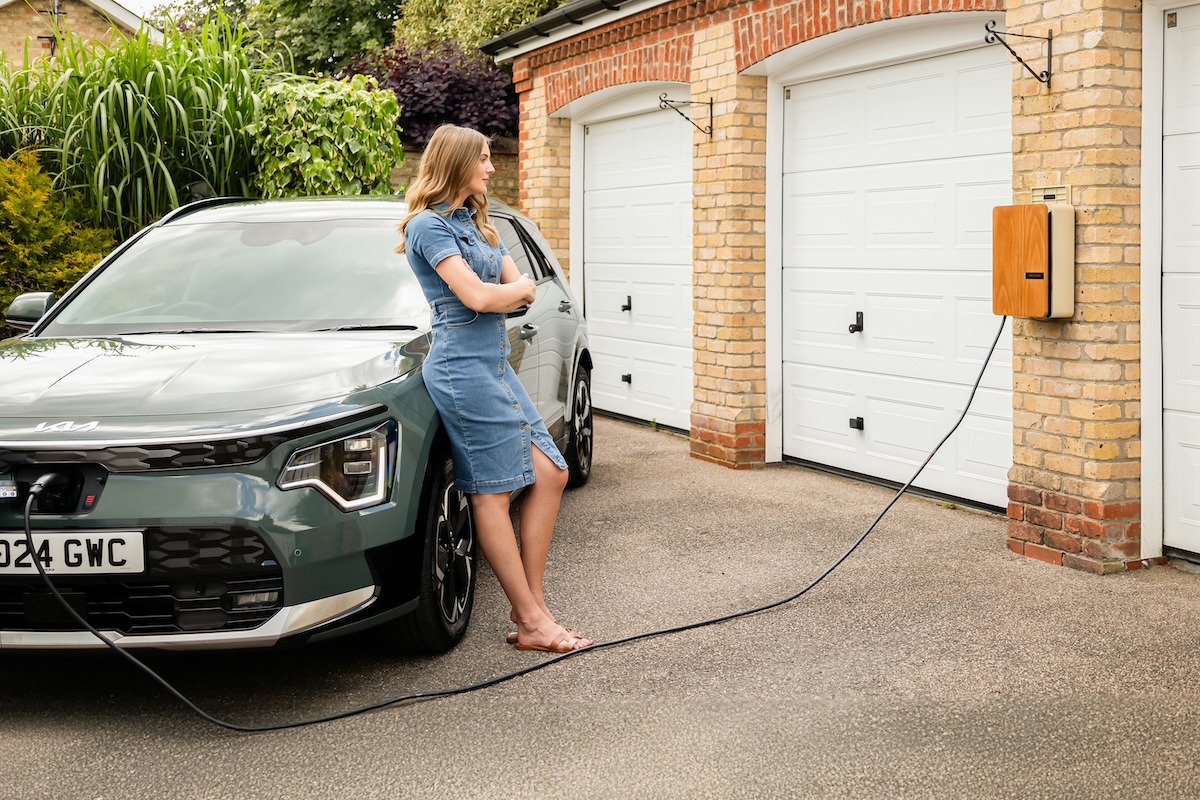The Fast and the Flux: The Future of EV Technology

Change: the only constant.
Whether or not we’re party to it, the world is always changing around us.
EVs are no different; the electric car market is in a constant state of flux. A relatively new technology, electric cars are at the pinnacle of innovation – and they’re changing faster than we could ever imagine.
In this article, we go over some of the most significant upcoming changes to EV technology. Whether we’re discussing revolutionary batteries or the latest in smart home technology, it’s clear: getting your next electric car with salary sacrifice will ensure you can enjoy the latest in new technological advances without sacrificing your wallet.
Ready to get started? Find your high-tech EV here.
What does new tech mean to the EV industry?
Not only is new tech incredibly exciting, but it also signifies practical improvements to the driving experience. The car market is obsessed with safety, and many of the upgrades below will ensure the safety of drivers, passengers and pedestrians alike. And when talking about EVs, we can’t ignore the sustainability improvements: more efficient batteries mean less reliance on carbon-heavy electricity sources, and autonomous driving may improve traffic flow and congestion.
While this innovation is exciting, it also leads to uncertainty around the price of new EVs and the second-hand e-car market. The recent Tesla price drop was a perfect example of this dichotomy: how technological improvements can create uncertainty surrounding residual values (what your car is worth at the lease's end) while making electric vehicles more accessible and affordable.
That’s why we love EV salary sacrifice leasing. For a slight reduction in their monthly gross salary, loveelectric drivers can enjoy the latest in car technology, get their new electric car at the lowest cost possible, and enjoy protection from unstable residual values.
Find out how much you could save on your new EV with salary sacrifice
Solid-state batteries
It’s official: lithium-ion batteries are old news.
Well, maybe not just yet. But the next wave of batteries is about to crash down on the industry, revolutionising how we charge EVs and the role our car will play in our household.
Solid-state batteries are expected to replace the current lithium-ion batteries used in EVs in the coming years. Unlike lithium-ion batteries that require layers of heavy metals within flammable liquid electrolytes to store power, solid-state batteries are just that: a solid electrolyte. This density and lack of flammable electrolytes mean solid-state batteries are crucial to unlocking the safety and energy density required for an electrified society.
Not only are solid-state batteries safer, more energy-dense, and quicker to charge than lithium-ion batteries, but they are also expected to be less expensive to produce than traditional batteries. In addition, their longer lifespan could increase the resale value of EVs and create more certainty around residual costs.
Of course, the sustainability impact will be huge. It’s no secret that battery production is an incredibly carbon-heavy process. However, with the rollout of solid-state batteries, their longer lifespan and higher energy density mean that this carbon cost can be spread over many more electric, tailpipe emissions-free miles.
And this future isn’t far away: several companies, including Toyota and QuantumScape, are working on solid-state EV batteries.
Closer to home, the UK government is heavily promoting the development of battery tech. Pledging £211m in 2022 to the Faraday Institute, proponents of research and development of next-gen batteries, the UK government has put its mouth where its money is, supporting the nation to become the leader in the battery revolution. Recipients of this funding, including Ilika, are working on solid-state battery research and development.
Wireless charging
Imagine driving into the garage after a long day’s work, hanging up the keys and never having to remember to charge or fill up your car again. With wireless charging, you’ll never have to deal with pesky charging cables or fossil-fuel pumps again.
It may seem far-off, but wireless charging is already widespread. Instead of a charger on your wall, a wireless charging pad is installed on the ground. Simply drive in, park your car over the pad, and the battery charges without fuss.
Wireless charging technology is an essential plug-in for expanding EV infrastructure nationwide. Implementing this new tech will enable more user-friendly charging, supporting more inclusive EV access and ensuring the UK’s seamless transition to electric.
This impact is most evident in expanding EV infrastructure in urban areas. Local councils in London, for example, have been exploring the use of wireless charging technology to help reduce air pollution. Eight hundred and fifty of London’s bus fleet are electric, and most can now be charged overnight using wireless charging pads. With this new charging method being faster and more convenient, the opportunity to transition the entire fleet to electric is in view, ensuring more sustainable public transport.
The battery is the heart, soul and powerhouse of an EV. But these massive leaps in battery tech mean so much more for EVs than just greater range and faster charge times: electric cars are the key to a more stable and supported electricity grid.
V2G technology
Vehicle-to-grid (V2G) or Vehicle-to-anything (V2X) technology could be the most exciting tech of the decade. As part of the ‘Internet of Things’ (IoT), V2G tech integrates your electric car and your home. Essentially, your EV acts as a battery for your home, storing energy from off-peak rates to use during peak energy usage.
The benefits are immediately apparent. Because you pull electricity from the grid during off-peak rates, you save on your monthly electricity bill. Additionally, because you have a store of cheap electricity in your car battery, you can sell any extra charge back to the grid, earning you money and stabilising the grid during peak usage. Coupled with a solar system and your home is an energy-generating machine.
Looking for the most cost-efficient way to commute? A beautiful smart charger and solar panels are the dream team. Find out how our friends at Hypervolt can make it happen.
In 2018, the UK government invested £30 million in V2G research. This funding was awarded to 21 projects to explore and trial the technology and commercial opportunities.
The opportunities with this tech are seemingly endless and signify a future with consistent and affordable electricity rates. And for those leasing electric cars through salary sacrifice, V2G technology could support even more affordable leases by creating certainty around residual costs. With EV owners able to earn money by selling energy back to the grid, second-hand electric cars could become more popular and increase the resale value of electric cars.
Indeed, these exciting technologies could increase resale values, stabilising electric car lease prices. As EV batteries improve in efficiency and range, become more convenient to charge, and power our homes and lives, this technology will flow into the second-hand market and ensure residual value certainty. Less waste, greater confidence around resale prices, more affordable EV leases: a future we can get behind.
Want to benefit from EV cutting-edge tech without worrying about your car’s resale value? With electric car salary sacrifice, you can do just that – and save up to 60% on your lease in the process.
Get started here.





